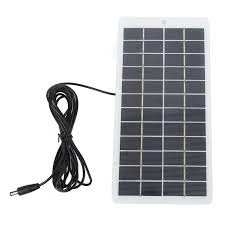Understanding the Capabilities and Benefits of Hybrid Inverter Technology for Energy Systems
The Functionality and Advantages of Hybrid Inverters
In recent years, the rise of renewable energy sources has prompted significant advancements in technology designed to efficiently harness and manage these resources. One of the most prominent innovations in this field is the hybrid inverter. As a critical component of solar power systems, hybrid inverters play a transformative role not only in energy generation but also in energy management, allowing for more efficient, adaptable, and sustainable energy solutions.
Understanding Hybrid Inverters
A hybrid inverter is a type of inverter that integrates multiple power sources, typically combining solar energy with the traditional grid and battery storage. Unlike standard inverters that solely convert DC power from solar panels into AC power for household use, hybrid inverters have the capability to manage energy from several sources simultaneously. This functionality allows them to regulate energy flows based on availability, demand, and stored energy, making them a versatile and powerful component in modern energy systems.
Key Functions of Hybrid Inverters
1. Energy Conversion The primary function of any inverter is to convert direct current (DC) from solar panels into alternating current (AC), which is the standard electricity used in homes and businesses. Hybrid inverters perform this function and can also handle input from battery storage systems, ensuring that energy is used in the most efficient way possible.
2. Energy Management One of the standout features of hybrid inverters is their ability to manage energy flow effectively. They can prioritize energy use based on current demand and available resources. For instance, when solar generation is high during the day, the inverter can direct excess energy to charge batteries rather than exporting it back to the grid, which can sometimes lead to financial penalties.
3. Seamless Switching Hybrid inverters allow for seamless switching between different energy sources. In times of grid failure, they can automatically switch to battery power without any interruption to the power supply. This feature is particularly beneficial for critical loads that must remain powered, such as medical equipment or refrigeration systems.
4. Monitoring and Control Advanced hybrid inverters come equipped with monitoring systems that provide real-time data regarding energy consumption, solar production, and battery status. Users can often access this information through smartphone apps or web interfaces, allowing them to make informed decisions about energy use and management.
5. Grid Support Hybrid inverters can play a vital role in supporting the grid, especially as more renewable energy sources are integrated into the electrical system. They can store excess energy generated during peak periods and release it back into the grid during high-demand times, thus contributing to grid stability.
hybrid inverter function

Advantages of Hybrid Inverters
The adoption of hybrid inverters comes with numerous benefits
- Increased Energy Independence By utilizing stored energy, homeowners and businesses can reduce their reliance on traditional energy sources, leading to potential cost savings on energy bills.
- Enhanced Reliability With the capacity to switch between multiple sources of energy and provide backup during outages, hybrid inverters enhance the reliability of power supply.
- Optimized Energy Utilization Hybrid inverters help users maximize their renewable energy use and minimize waste by intelligently directing energy flows based on real-time conditions and requirements.
- Environmental Impact By encouraging the use of clean energy and reducing reliance on fossil fuels, hybrid inverters contribute to a decrease in carbon emissions, supporting global environmental goals.
- Scalability As energy needs grow or technology evolves, hybrid inverter systems can be scaled up with additional panels or batteries, making them a future-proof investment.
Conclusion
In conclusion, hybrid inverters serve as a cornerstone in the transition towards a more sustainable and efficient energy system. Their ability to integrate multiple power sources, manage energy effectively, and provide reliable power during outages positions them as an essential component for both residential and commercial energy solutions. As the demand for renewable energy continues to rise, the functionality and benefits of hybrid inverters will undoubtedly play a significant role in shaping the future of energy consumption and management. Whether for energy independence, cost savings, or environmental stewardship, investing in hybrid inverter technology holds promise for a more sustainable energy future.
-
Unlocking Energy Freedom with the Off Grid Solar InverterNewsJun.06,2025
-
Unlock More Solar Power with a High-Efficiency Bifacial Solar PanelNewsJun.06,2025
-
Power Your Future with High-Efficiency Monocrystalline Solar PanelsNewsJun.06,2025
-
Next-Gen Solar Power Starts with Micro Solar InvertersNewsJun.06,2025
-
Harnessing Peak Efficiency with the On Grid Solar InverterNewsJun.06,2025
-
Discover Unmatched Efficiency with the Latest String Solar InverterNewsJun.06,2025







